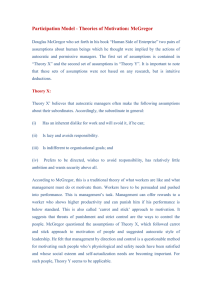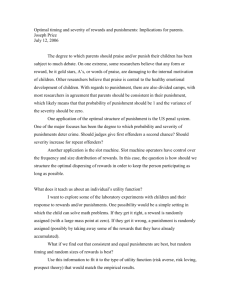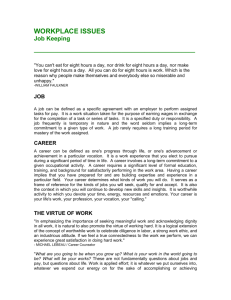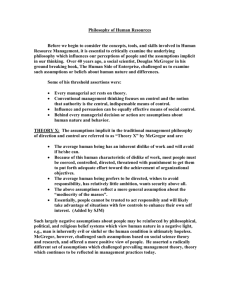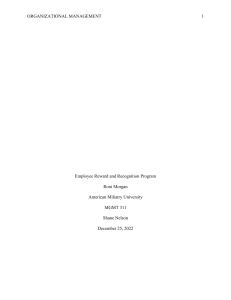The Assumptions of Theory Y
advertisement
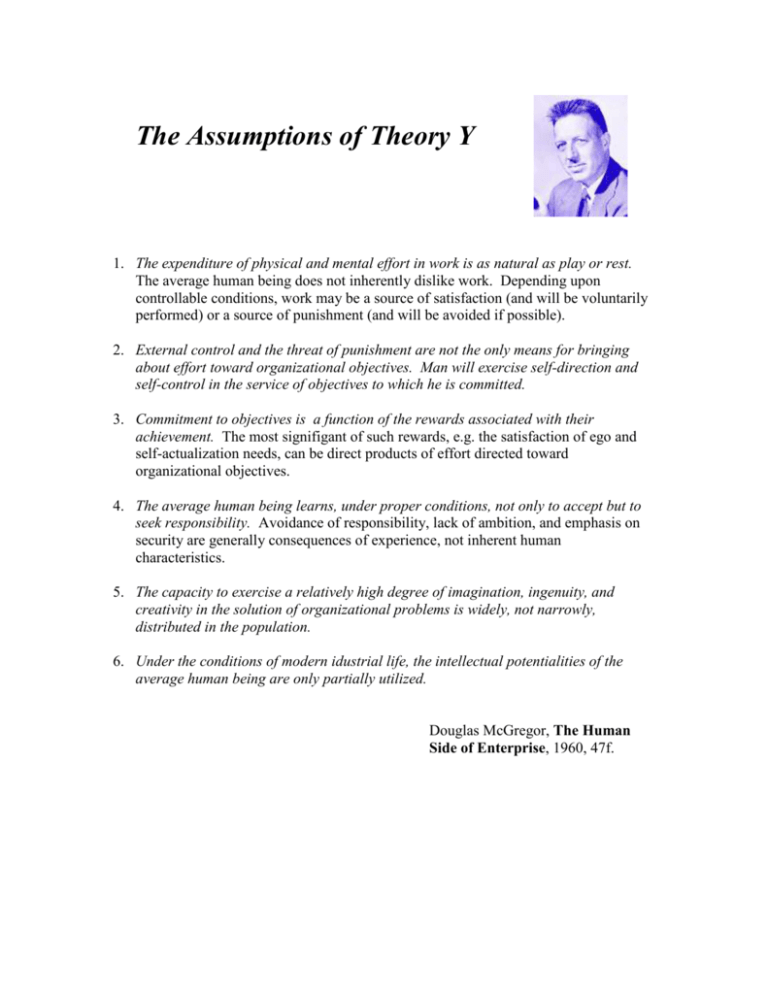
The Assumptions of Theory Y 1. The expenditure of physical and mental effort in work is as natural as play or rest. The average human being does not inherently dislike work. Depending upon controllable conditions, work may be a source of satisfaction (and will be voluntarily performed) or a source of punishment (and will be avoided if possible). 2. External control and the threat of punishment are not the only means for bringing about effort toward organizational objectives. Man will exercise self-direction and self-control in the service of objectives to which he is committed. 3. Commitment to objectives is a function of the rewards associated with their achievement. The most signifigant of such rewards, e.g. the satisfaction of ego and self-actualization needs, can be direct products of effort directed toward organizational objectives. 4. The average human being learns, under proper conditions, not only to accept but to seek responsibility. Avoidance of responsibility, lack of ambition, and emphasis on security are generally consequences of experience, not inherent human characteristics. 5. The capacity to exercise a relatively high degree of imagination, ingenuity, and creativity in the solution of organizational problems is widely, not narrowly, distributed in the population. 6. Under the conditions of modern idustrial life, the intellectual potentialities of the average human being are only partially utilized. Douglas McGregor, The Human Side of Enterprise, 1960, 47f.
